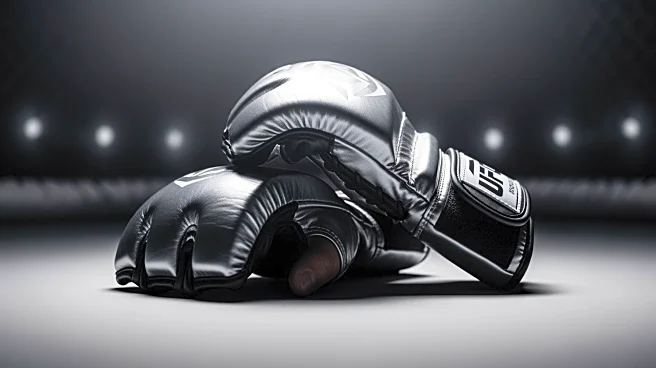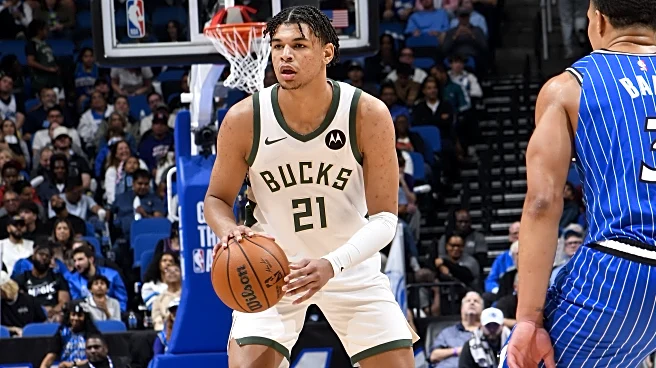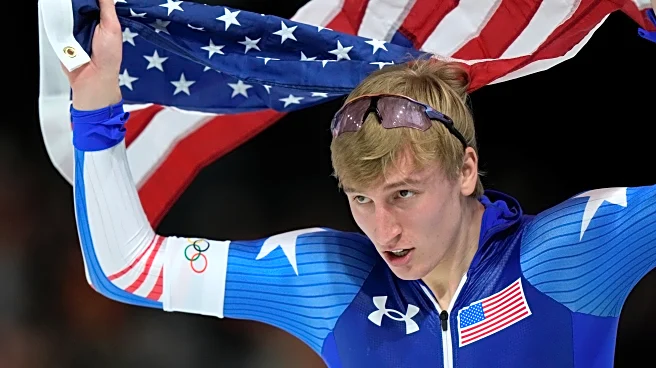What's Happening?
Former UFC heavyweight and light heavyweight champion Jon Jones has expressed his views on current heavyweight champion Tom Aspinall following Aspinall's recent bout against Ciryl Gane. During the No Scripts Podcast, Jones described Aspinall as a 'one-trick
pony,' suggesting that his wrestling and jiu-jitsu skills are overrated. Jones acknowledged Aspinall's striking ability, particularly his 'beautiful one-two,' but criticized his inability to effectively challenge Gane during their fight. The match between Aspinall and Gane, held on October 25 at UFC 321, ended in a no-contest due to repeated eye pokes from Gane. Aspinall's previous fight was a victory against Curtis Blaydes in July 2024, while Gane last competed in December 2024, defeating Alexander Volkov.
Why It's Important?
Jon Jones' comments on Tom Aspinall's fighting style could influence perceptions within the MMA community, potentially affecting Aspinall's reputation and future matchups. As a prominent figure in the sport, Jones' critique may impact Aspinall's approach to training and strategy in upcoming fights. The discussion also highlights the competitive dynamics within the UFC heavyweight division, where fighters' skills and adaptability are constantly scrutinized. Aspinall's performance and Jones' remarks may prompt fans and analysts to reassess the strengths and weaknesses of top contenders, influencing betting odds and promotional narratives.
What's Next?
The aftermath of the no-contest bout between Tom Aspinall and Ciryl Gane may lead to a rematch, allowing both fighters to settle the unresolved contest. Aspinall might consider refining his techniques and addressing the criticisms raised by Jon Jones to enhance his competitive edge. Meanwhile, Ciryl Gane could focus on maintaining his momentum and preparing for future challenges in the heavyweight division. The UFC may also explore potential matchups involving these fighters, considering fan interest and the implications of Jones' comments.
Beyond the Headlines
Jon Jones' critique of Tom Aspinall underscores the importance of versatility and adaptability in MMA. Fighters are often evaluated not only on their physical prowess but also on their strategic acumen and ability to evolve. Aspinall's response to this criticism could reflect broader trends in the sport, where athletes continuously seek to expand their skill sets to remain competitive. The discourse around Aspinall's fighting style may also influence training methodologies and the emphasis placed on different martial arts disciplines within the UFC.
















